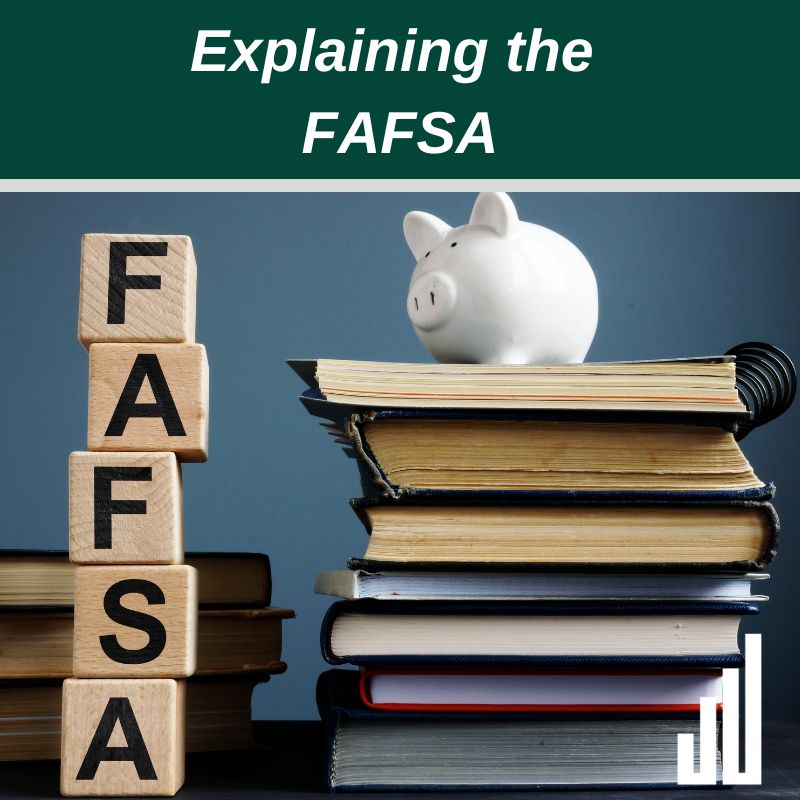Here are some helpful tips and resources for filing the Free Application for Federal Student Aid (FAFSA®)
The 2023-2024 FAFSA form has been available since Friday, September 30th so if you or your child plan to attend college in 2023 you will want to fill out the FAFSA as soon as possible as some scholarships or financial aid are based on a first come, first served basis.
Here are the items to have ready before you begin with the online FAFSA form:
- FSA ID – The student and at least one parent should have a username and password to establish an FSA ID in advance of beginning the FAFSA form. The FSA ID is used to sign the student’s FAFSA. The student as well as one parent will have to electronically sign with the FSA ID. Create an FSA ID here: https://studentaid.gov/fsa-id/create-account/launch
- Social Security numbers – Parent(s) and Student’s
- Drivers licenses– Parent(s) and Student’s
- The parent’s and student’s 2021 Income tax return if filing the 2023-2024 FAFSA. Alternatively, the IRS Data Retrieval Tool can also be used instead of manually typing in your tax data.
- Balances of assets on the day the FAFSA form is submitted for both the student and parents– This includes checking, savings, stocks, bonds, real estate (excluding primary residence). Do not include retirement assets (Roth IRA, Traditional IRAs, 401(k), 403(b), etc…)
- List of schools you would like to send the FAFSA form to – List any school you can think of!
So now that you’ve gathered all of your documents and have FSA ID’s established, let’s begin filling out the FAFSA form:
- Complete the FAFSA® form online: https://studentaid.gov/h/apply-for-aid/fafsa
- Even if you don’t think the student will qualify for any aid, fill out the FAFSA form anyway. It doesn’t hurt and it really doesn’t take that much effort.
- If the parents are assisting with filling out the FAFSA, it is important to have your son or daughter involved in the process. This is a fantastic learning experience for the student. Also, they will need to use their FSA ID when signing and should understand the information that is provided.
- If the income reported on your tax return is different from your current situation due to loss of employment, retirement, etc… you will want to reach out to the financial aid office of each of the institutions to inform them of your circumstances. Not doing so could negatively affect eligibility for financial
- When you are filling in the sections of the FAFSA, keep in mind what section you are in, student versus parent. Don’t confuse them!
- A great resource is the paper FAFSA form as it provides additional details and definitions: https://studentaid.gov/sites/default/files/2023-24-fafsa.pdf
Do you have any questions? If so, we welcome you to reach out to the JGUA team!
Phone: 1-800-936-3785
E-mail: [email protected]







